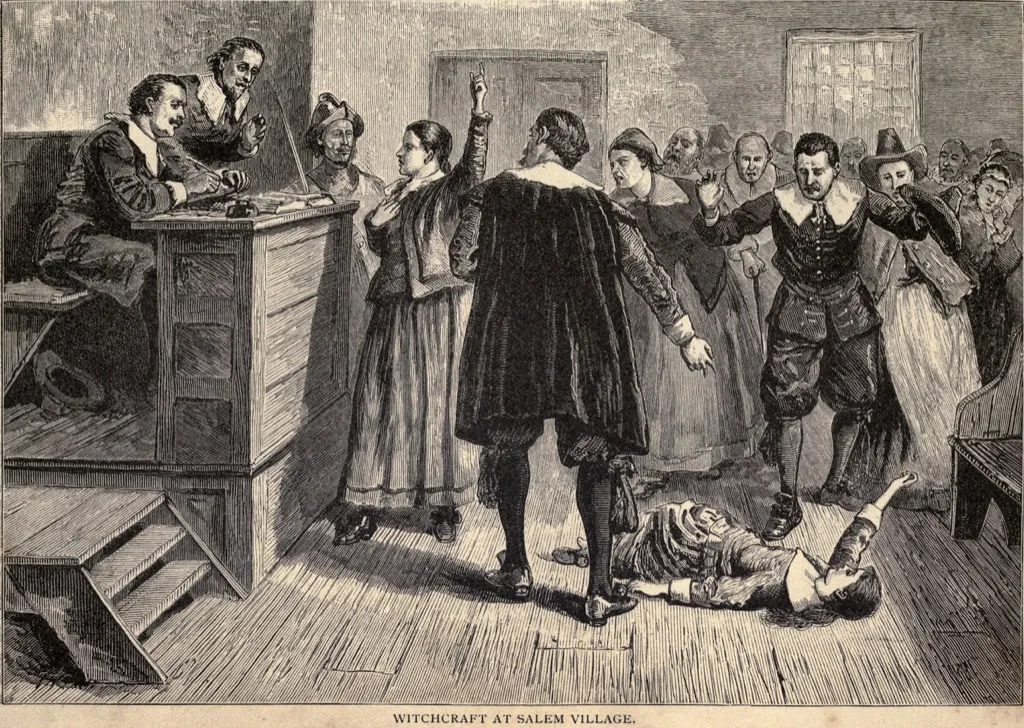The Amazing Origins of Everyday Slang Terms You Use Constantly

English is an amazingly adaptable language. In a single year, the Oxford Online Dictionaries adds approximately 1,000 words to our cultural lexicon, many of which stem from popular slang. New slang is always being created, some even originated out of the coronavirus pandemic.
Truth be told, there are so many slang terms and phrases in the English language that you might probably don’t even realize how frequently you use them. And while some of them just sort of popped into being, others actually have very interesting and elaborate etymologies. We’ve rounded up the surprising origins of 27 slang terms you probably use every day. And for more vintage vocabulary, check out Old Slang Terms Kids Born After 2000 Will Never Understand.
1
Takes the cake

The phrase “takes the cake” comes from the cake walks that were popular in the late 19th century. Couples would strut around gracefully and well-attired, and the couple with the best walk would win a cake as a prize. Interestingly, cake walk was soon used to describe something that could be done very easily, and it’s very possible that from there we get the phrase “piece of cake.” And for some words and phrases you may want to retire from your lexicon, These Are All of the Slang Terms You’re Too Old to Use After 40.
2
Above board

When poker players keep their hands above the table, it’s impossible (or at least much harder) for them to cheat by stacking the deck. The table was also called a board, so if something’s above board it means it’s legitimate.
3
Parting shot

A parting shot, which is a final insult tossed out at the end of a fight when you assume it’s over, was originally a Parthian shot. The Parthians, who lived in an ancient kingdom called Parthia, had a strategy whereby they would pretend to retreat, then their archers would fire shots from horseback. Parthian sounds enough like parting, and, coupled with the fact that not a lot of people knew who the Parthians were, the phrase was changed to parting shot. And speaking of insults, check out how Megan Fox Slams Ex Brian Austin Green for Posting a Photo of Their Kid.
4
Dead as a doornail

One could certainly argue that a doornail was never alive, but when a doornail is dead, it has actually been hammered through a door, with the protruding end hammered and flattened into the door so that it can never come loose or be removed or used again. The phrase “dead as a doornail” has actually been around since the 14th century, about as long as the word doornail has officially been in the English language.
5
Down to brass tacks

There are many theories about what “down to brass tacks” means, including that brass tacks is rhyming slang for hard facts. But it’s very likely that the brass tacks being mentioned here are actual brass tacks. Merchants used to keep tacks nailed into their counters to use as guides for measuring things, so to get down to brass tacks would be you were finally done deciding what you wanted and were ready to cut some fabric and do some actual business.
6
It’s Greek to me

The phrase “it’s Greek to me” is often attributed to Shakespeare, but it’s been around since well before his time. An earlier version of the phrase can be found written in Medieval Latin translations, saying “Graecum est; non potest legi,” or “it’s Greek. Cannot be read.” And for more ancient jargon, check out 100 Slang Terms From the 20th Century No One Uses Anymore.
7
Pushing the envelope

“Pushing the envelope” doesn’t refer to an actual, physical envelope. Rather, the envelope is a mathematical one—in this case, a flight envelope. The flight envelope of an aircraft is a measure of its airspeed, load factor, or altitude capabilities. So to push the envelope would be to test the bounds of safety when flying an aircraft, not gently nudging an actual envelope across a table. And to have word origins, entertainment lists, news, and more delivered to your inbox, sign up for our daily newsletter.
8
Smart Alec

You may have presumed the Alec in “smart Alec” was just a name that sounded good preceded by the word smart, but that’s not necessarily the case. Professor Gerald Cohen suggested in his book Studies in Slang that the original smart Alec was Alexander Hoag, a professional thief who lived and robbed in New York City in the 1840s. Hoag was a very clever criminal who worked with his wife and two other policemen to pickpocket and rob people. He was eventually busted when he decided to stop paying the cops.
9
Heard it through the grapevine

The grapevine people hear things through is a grapevine telegraph, which was the nickname given to the means of spreading information during the Civil War as a kind of wink at an actual telegraph. The grapevine telegraph is just a person-to-person exchange of information, and much like when you play a game of telephone, it’s best to presume that the information you receive has gone through a few permutations since it was first shared.
10
Beef

Saying you’ve got a beef—or are beefing—with somebody has actually been slang since the late 19th century. However, even before that, people were using beef as slang. In the 18th century, people would shout “hot beef” instead of “stop thief,” and so beef gradually became synonymous with shouting, which gradually turned into arguing, and now it is mostly used to describe a feud between two people. And for more beautiful bovine pics, check out 28 Cow Photos That Are Too Adorable for Words.
11
Snitch

People have been using the word “snitch” to describe an informant since the late 18th century. Prior to that, snitch was a flick on the nose. Then it meant the nose itself. And since nosy people are always sticking their noses in other people’s business, it wasn’t long until snitch began to be used in the manner it is today.
12
Bite the bullet

Today, when somebody bites the bullet, they are doing something extremely unpleasant. When the phrase came into being, though, people would literally bite down on bullets. Before anesthetics were invented, soldiers would chomp down on a bullet to make it through the pain of an amputation.
13
Blockbuster

A blockbuster today refers to a big-budget Hollywood movie, but originally it was the name given to massive bombs used by the British in World War II, which weighed up to 12,000 pounds, that could eviscerate an entire city block. Advertisers took the word and used it describe a massive movie that would do anything but bomb. Sadly, some blockbusters still do.
14
Cat’s out of the bag

Farmers used to stick little suckling pigs in bags to take them to market. But if a farmer was trying to rip somebody off, they would put a cat in the bag instead. So, if the cat got out of the bag, everybody was onto their ruse, which is how we use the phrase today, just not quite so literally. (We hope.)
15
Nothing to sneeze at

When something is nothing to sneeze at, it’s substantial enough to warrant being taken seriously. What that has to do with sneezing seems like quite a mystery, unless you know that the word sneeze also meant snorting in addition to sneezing. So, “nothing to sneeze at” is actually “nothing to snort at in disdain.”
16
Icebreaker

Countries used to send little boats out to break up the ice for big boats from other countries that were coming into port. This was a sign of friendliness between the countries, and now we break the ice at parties to show people we know how to be an actual conversational human being.
17
Out of whack

Today, “out of whack” means not quite right, but it took a long time to get there. Whack appeared in the 18th century as a word that meant to strike a blow when used as a verb. The noun whack was the blow that was whacked on something. But whack also grew to mean portion or share, especially as loot that was being split by criminals. From there, whack grew to mean an agreement, as in the agreed share of loot, but it also meant in good order. If something was behaving as it was intended to, it was “in fine whack.” Eventually the opposite fell into common usage, and something that wasn’t in good shape was “out of whack.”
18
Wicked

Wicked is popular slang in New England, and the word has its roots in the Puritans who colonized the territories hundreds of years ago. Wicked was the word they used to describe people they accused of being witches, and over time the way the word was used changed much in the way words like awful and terrible have, e.g., that’s awfully nice of you, or that’s terribly sweet.
19
Humble pie

When somebody eats humble pie, they aren’t eating a metaphorical pie filled with metaphorical humility that will make them feel less proud. Humble pie used to be “umble pie,” which was a pie filled with the innards of game. It was food for servants or other people with lowly stations.
20
Writing’s on the wall

The writing’s on the wall is actually a reference to the book of Daniel in the Old Testament. Basically, a king named Belshazzar was really into a sinful lifestyle. After he and his pals drank from cups that had been stolen from the Temple of Solomon, an ethereal hand appeared and wrote on the wall that Belshazzar’s days were numbered. And that very night he was killed.
21
Kibosh

To put the kibosh on something is to shut it down. But the word kibosh possibly comes from the Gaelic word “cie bais,” which is the black hat a judge would put on before sentencing somebody to be executed, which is a very extreme way to shut something down.
22
Haywire

If something’s gone haywire it’s unpredictable or difficult to control, which is exactly what actual haywire is. It’s the wire that’s used for hay bales, which happens to be springy and hard to maneuver.
23
Between a rock and a hard place

Some people think that the phrase “between a rock and a hard place” is a kind of sloppy reference to Odysseus. But in 1921, the phrase became a popular means of describing when miners had to choose between dangerous work for little or no money or definite poverty during the Great Bankers’ Panic of 1907.
24
Buck

Calling a dollar a buck hearkens back to the days when traders would use furs as currency. A buck was a deerskin.
25
Decked out

The phrase “decked out” originates with the Middle Dutch word “dekken,” which means to cover. It’s a way of saying something is being adorned, for example, you might deck the halls with boughs of holly. So, if you are decked out, you have very thoroughly decorated yourself, basically.
26
Balls to the wall

If something is balls to the wall, it’s full throttle, literally. The balls being discussed are the balls on top of the levers that controlled a plane’s throttle, among other things. So, if a pilot pushed the balls to the wall, they were really going all out.
27
Up to snuff

“Up to snuff” became a popular phrase in the early 19th century, just as using snuff was becoming a disgusting habit for rich people. So, when it first started circulating, the phrase probably meant a person was worldly enough to have a snuff habit. It’s possible that later it meant that a person would be able to distinguish between high and low quality snuff. Today, the phrase means that something is meeting a standard.